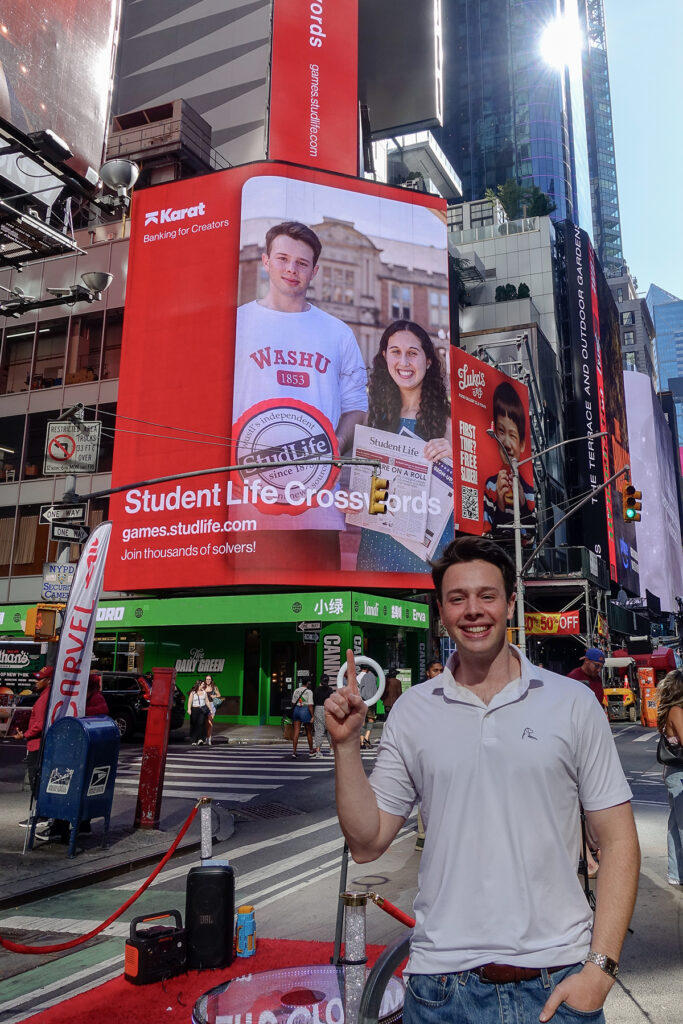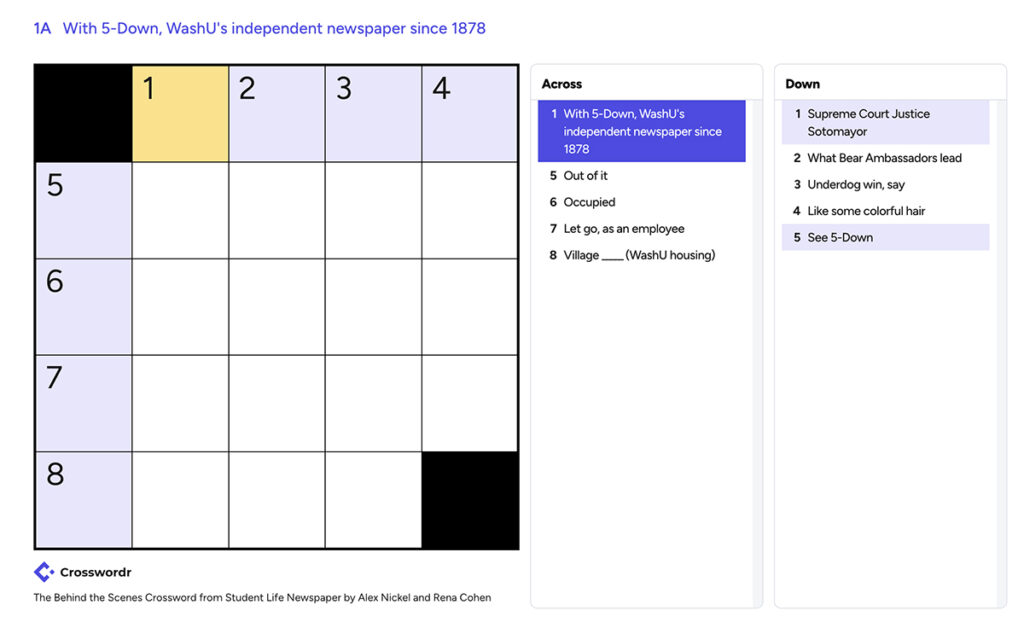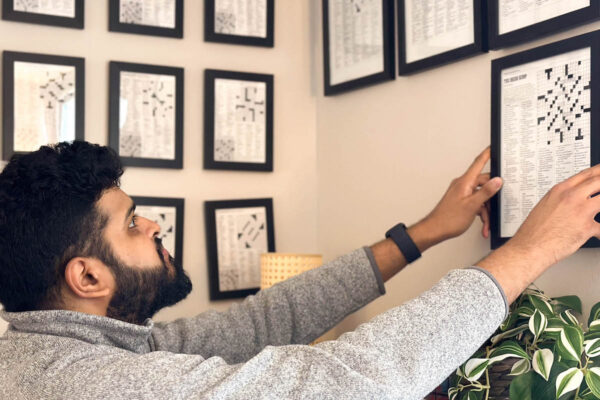If you happened to be in New York City last weekend, perhaps you saw a Times Square billboard promoting a very WashU pastime: Student Life Games. There, smiling from the 55-by-31-foot digital display, were crossword creators and founders of the newspaper’s games page, recent graduate Alex Nickel and sophomore Rena Cohen.
“It was surreal,” said Nickel, who traveled to New York to see the billboard in person. The advertisement came as a perk with Nickel’s credit card with Karat, a financial company for online creators. “I never would’ve imagined our crosswords would grow into something this big.”

Nickel came to crosswords only recently. As a bored and unemployed rising sophomore, he spent hour after hour playing the New York Times Mini, the smaller, quicker version of the paper’s classic puzzle.
Cohen, on the other hand, started solving crosswords as a child and submitted her first full-size puzzle to The New York Times at age 11. No surprise, the paper took a pass. But she kept at it and earned a spot in the NYT Diverse Crossword Constructor Fellowship as a high school senior. The New York Times has since published six of Cohen’s puzzles. Her most recent crossword appeared Sept. 2 and was inspired by the ampersand-shaped pretzels that Arts & Sciences served new students during Fall Welcome last year.
“I came to campus gung ho and ready to find solvers my own age,” said Cohen, who grew up in Bloomington, Ind., where New York Times puzzle editor and mentor Will Shortz attended college. “I was so excited to meet in Alex someone who is as passionate about crosswords as I was.”
As passionate? Absolutely. As skilled? No way, Nickel conceded. By the time he met Cohen last fall, Nickel had become a better and faster writer. (His first mini took five hours, sheets of paper and “brute force” to complete.) Still, he was only publishing a puzzle a week. Cohen, who can knock out a mini in 30 minutes, changed all of that.
“Rena is just a whole different level,” said Nickel, who graduated in May with a degree in economics from Arts & Sciences and now works as an associate consultant at Bain & Company in Chicago. “She came in with so many ideas and so much energy that really pushed us forward.”

Together, they decided to recruit new constructors — crossword creators in puzzle parlance — and publish a daily online puzzle. They wanted the puzzles to be challenging, but not too challenging.
“If it takes more than two minutes to solve, we know we made it too hard,” Nickel said.
Nickel and Cohen also wanted to create something WashU-specific. Some clues nod to St. Louis culture (“Clementine’s treat,” “St. Louis native with songs like “Kill Bill” and “Good Days”) while others capture life on campus (“Campus Y group that works with local dog, cat and wolf! rescues,” “Like many Sam Fox students,” “Tomorrow is the last day to do this to a WashU class”).
So far, Student Life Games has accumulated about 15,000 online solves. Countless more solvers have completed the print puzzles.
“It’s the best feeling to sit behind someone who is doing the puzzle before class or hear how much people love what we’re doing,” said Nickel, who still helps out as needed.
Cohen is currently training a new crew of constructors and is thrilled that the StudLife Games audience continues to grow. She loves all word games, but said crossword puzzles have endured for a reason. Yes — they are a delightful diversion. And yes — they spark our competitive spirit. (Cohen once solved a Monday daily crossword in 2 minutes, 50 seconds; Nickel smashed a NYT Mini in 8 seconds.) But crosswords also upend our perceptions.
“I crave that aha moment when I figure out the theme of the daily crossword,” said Cohen, who is studying psychology and Spanish in Arts & Sciences. “It helps you think creatively because themes are always about double definitions and seeing things in ways that aren’t always obvious. When you apply that to other aspects of your life — seeing the deeper meaning of something or seeing something in a new light — it changes how you see the world.”


